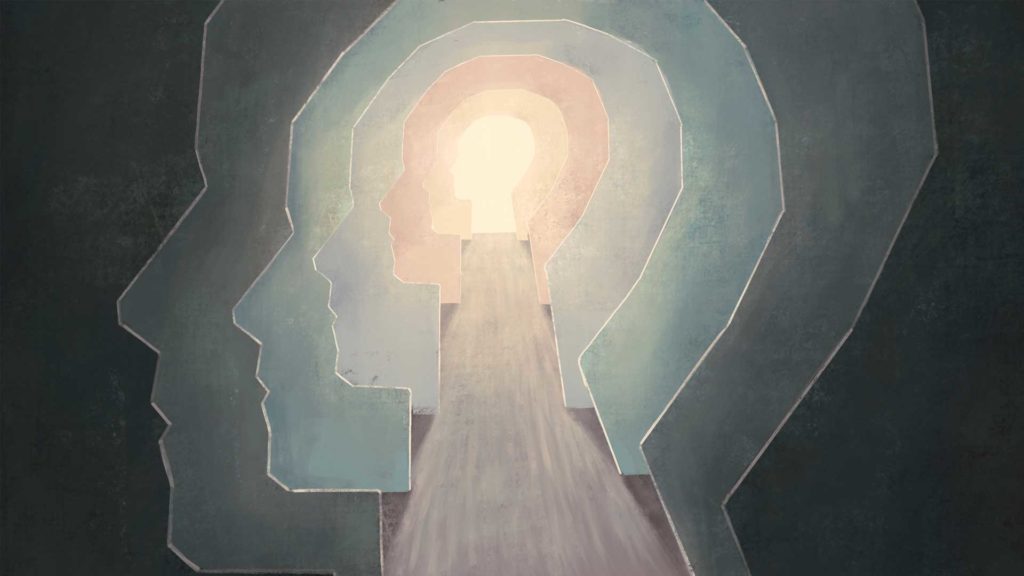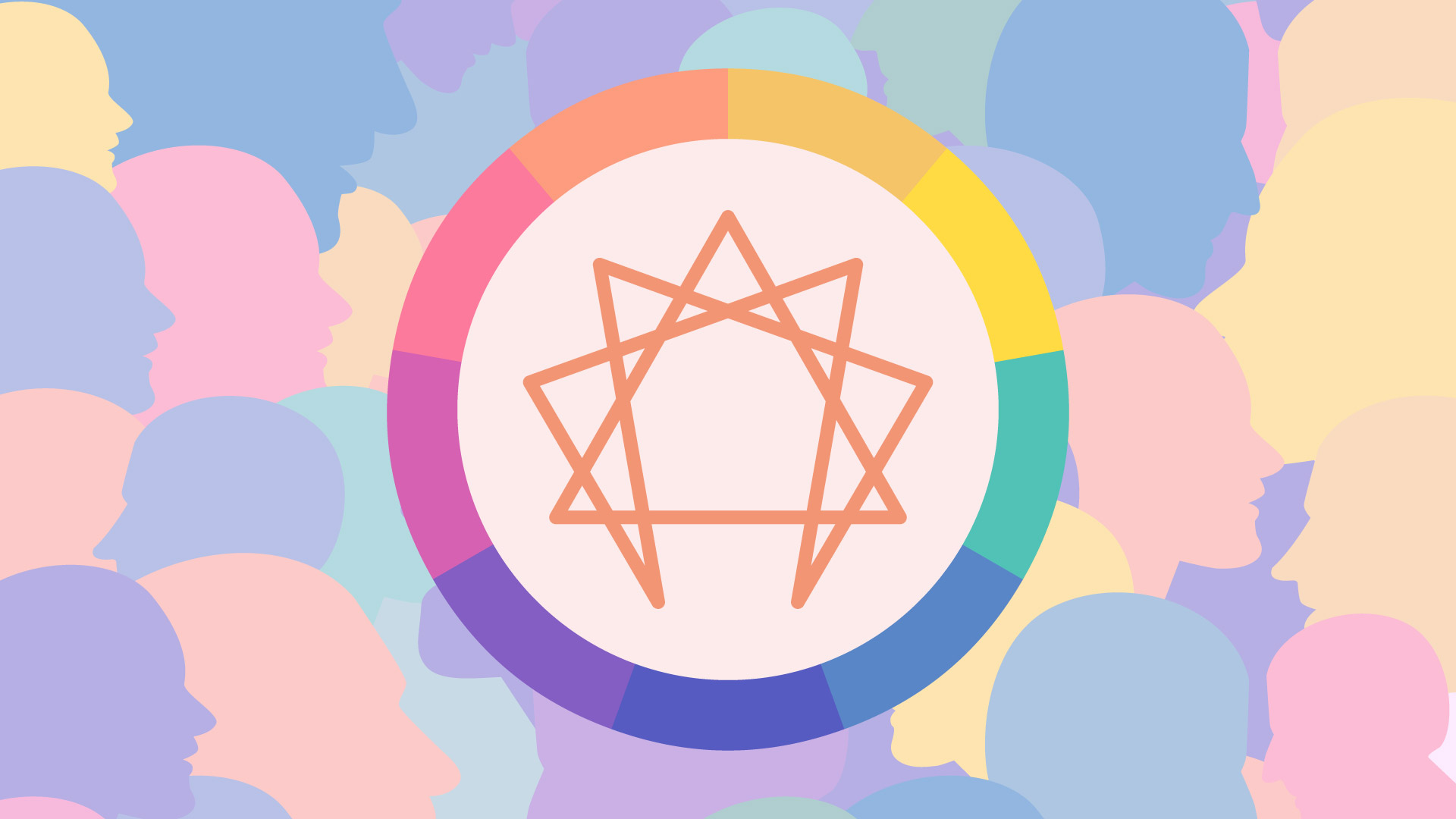
Understanding Personality Types and How They Work Together

If there are universal truths about being a human being, one of them is our absolute inability to pass up a personality test. We are constantly seeking to know ourselves and others more fully, to find healing and understanding through learning about what divides and connects us. We frequently look for different methods of categorizing and explaining why we are the way we are, for our lives and relationships to have less conflict and be more fulfilling.
There are many ways that we have categorized ourselves through different personality type systems: Meyers-Briggs, the Keirsey Temperaments, the four DiSC types, and the twelve Zodiac signs, among others. One such system of distinguishing between different personalities that many find to be eerily accurate and has had a surge in popular appeal lately is the Enneagram. The Enneagram Personality Type is a tool for understanding our deep inner workings and the motivations that inspire our ways of being. An amalgam of philosophy, psychology, and spirituality, the Enneagram test shows us 9 diverse ways that we relate to the world, and the gifts and challenges of each of these 9 types.
As we go through the descriptions of each Enneagram type, it is a common approach to try to figure out which of the 9 types seems most like you and focus exclusively on that type. I encourage you to be open to understanding each of the 9 types equally, because although we are dominant in one type, we each experience aspects of all of the 9 types.
Enneagram Types Explained
Enneagram One
Type Ones, often referred to as The Reformer or Perfectionist, are conscientious and ethical, with a strong sense of right and wrong. At their best they are often well-organized, orderly, wise and discerning, however, they can also slip into being critical and perfectionistic with themselves and others. Type Ones are often rule-followers, pay attention to detail, and strive to avoid making mistakes. Their deepest fear is of being “bad”, morally flawed, or seen as less than perfect, and through acceptance of their imperfections they can achieve a sense of peace and serenity.
Enneagram Two
Type Twos, or The Helpers, are often empathetic, attuned to others needs, friendly and warm-hearted. They are generous and self-sacrificing and are driven to be close to others. Type Two’s can have difficulty with accessing their own needs, and often tend to other’s needs to gain their love and appreciation. Twos have a need to be needed, and often try to make themselves invaluable to others in their service to them. This can create resentment for all that they do for others without tending to themselves. At their best, their gifts are unconditional love and generosity, and when practicing self care, they can achieve this unconditional love for themselves as well.
Enneagram Three
Type Three, The Achiever, is a charming, success-driven and image-conscious type. They often have a sense of radiance about them, excel at whatever they put their energy into, and are seen as self assured, competent and ambitious. They are hard-workers and can experience a workaholic and competitive nature when becoming imbalanced. Threes focus on how they are perceived, and often have a deep fear of unworthiness without their achievements and accolades. They can devolve into dishonesty, even with themselves, to maintain their image. At their best, however, Threes are role models who inspire and motivate others.
Enneagram Four
Type Fours, The Individualists, are self-aware, sensitive, drawn to romanticism, and emotionally honest. They are often creative and visionary and can tend to withdraw from others due to feeling defective or misunderstood. The deep emotionality of the Type Four can also lean toward melancholy and self indulgence, and they have a sense of feeling separate or different than others. Their gifts are an ability to hold space for authenticity and depth, and they inspire creativity through their own unique expression.
Enneagram Five
Type Fives, The Investigators or Observers, are cerebral, insightful, and curious. They are motivated by a need to know and understand the world, and they are life-long researchers. Fives can come across as detached, as they often withdraw from others to avoid rejection and a feeling of incompetence. They tend to feel that the world demands too much, and are self-sufficient and non-demanding, conserving their energy for pursuits of the mind. Brilliant and inventive, they are the source of many innovations and creative ideas.
Enneagram Six
Type Six, or The Loyalist, is security-oriented and committed, reliable, hard-working, and trust-worthy. They can tend to be cautious, unsure, and look to others for advice. When present with themselves, they are their own best counsel, knowing the best course of action for themselves and often for others as well. Sixes have a strong ability to trouble-shoot and foresee problems occurring, although this is in part due to an abundance of time spent worrying and preparing for an imagined future. At their best, Sixes are stable and courageous champions for themselves and others.
Enneagram Seven
Type Sevens, or The Enthusiasts, are optimistic, spontaneous, and playful. Usually high-spirited and optimistic, they are often able to bring a lot of energy and fun to their environment. A fear of missing out can prompt them to overextend themselves, and they can become scattered and exhausted from being on the go. Sevens like to plan for exciting new experiences and can be impatient and impulsive when resisting feeling anxious, bored, or trapped. A healthy, balanced Seven is appreciative, joyful, and satisfied.
Enneagram Eight
Type Eights, or The Challengers, are assertive, self-confident, and protective. They carry themselves with strength and resourcefulness, and prefer to avoid feeling controlled or dominated. Eights appreciate honesty and decisiveness, and are champions for the underdog. They do not shy away from conflict, and can be confrontational and domineering. Eights can have difficulty with vulnerability, and with their tempers. At their best, Eights inspire us to be bold, to speak up for ourselves, and improve our lives.
Enneagram Nine
Type Nines, The Peacekeepers, are supportive, stable, and accepting. They can see all sides of an issue but can tend to go along with others to keep the peace. They prefer situations to go smoothly, and to avoid conflict at all costs. Nines are often creative and optimistic, with a steady grounded presence. Diplomatic communicators, Nines are gifted at bringing people together and healing conflicts. This skill of tending to the needs of others can allow them to slip into patterns of self-avoidance and self forgetting. At their best, Nines create harmony in their environment and accept themselves and others as-is.
What Enneagram Type Am I?
After reading these words, you might recognize yourself, a family member, or significant other in the descriptions. It is important to realize that we are not “a type,” and although we each experience one of these types more dominantly than the others, we have access to all of these energies and traits. Therefore, it can be helpful to look at the parts of ourselves that resonate with all 9 types, and work to create more balance in how we experience and express these parts.
How Do Different Personality Types Work Together?
As you learn more about the distinct types, you might start to notice some commonalities as well. Each type has unique gifts and struggles, yet a common thread across all of these types is the desire for love and connection. Each type also experiences fear in similar ways, and we often then try to push this fear away by unconsciously demonstrating the more “negative” aspects of our type structure. One common inquiry when learning about Enneagram Personality Types is whether certain types are better suited to our dominant type, and if some pairings are just naturally difficult. While there are not inherently healthy or unhealthy type pairings, our level of self-awareness inside of our type structure can create balance or imbalance relationally.
For example, an unhealthy and unaware Enneagram Type One, with a critical and judgemental response to fear, can create a lot of friction with an average to unhealthy Type Seven, who chafes against any attempt to be restrained or limited. Someone dominant in Type Eight, who can come across as abrupt and confrontational when out of presence, might trigger a Type Two who needs connection and appreciation above all else.
Seemingly opposite types do often gravitate toward each other, and it is common to see more assertive types in relationships with withdrawn or compliant types, as these energies are attractive and tend to balance when relating to each other. It is apparent that the differences between us, while initially attractive, often cause friction, however. Sometimes this friction is a result of us reacting to a part of ourselves that we see reflected by others, and this can be informative in helping us to enhance or temper these traits in ourselves.
Developing recognition and compassion for this process in ourselves and in others can be incredibly healing, as learning what makes us tick is a key step to building connections to ourselves and others. The Enneagram test can provide a great starting point for self and relational exploration, and if you would like to learn about it at a deeper level, a couple of useful resources are The Narrative Enneagram and The Enneagram Institute.



